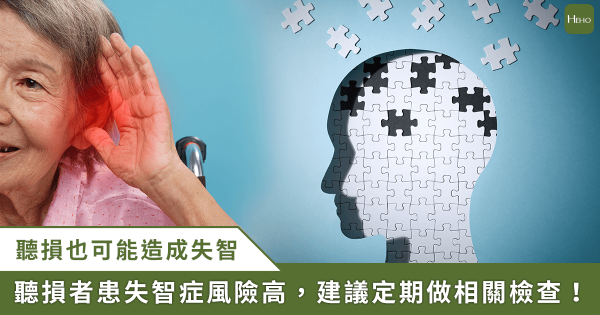According to the "2019 Global Dementia Report" by Alzheimer's Disease International (ADI), there are currently over 50 million people worldwide suffering from dementia. This number is expected to increase to 152 million by 2050. Dementia not only affects the quality of life of patients but also imposes a heavy burden on families and society. Related healthcare costs have already reached USD 1 trillion annually, and are expected to double by 2030. Therefore, the World Health Organization (WHO) proposed the Global Action Plan on the Public Health Response to Dementia (2017-2025), which includes seven action areas, such as risk reduction, diagnosis, treatment and care, support for caregivers, and information systems and innovation, to enhance global dementia prevention and control effectiveness. People with hearing loss are five times more likely to develop dementia. (Photo provided by Heho Health)
People with hearing loss are five times more likely to develop dementia. (Photo provided by Heho Health)
It is worth noting that the risk factors for dementia are not only related to hypertension, diabetes, and obesity; research has shown that hearing loss is also a major risk factor. Uncorrected hearing loss may lead to cognitive decline and increase the risk of dementia by five times. Therefore, many countries have incorporated hearing management into their dementia prevention strategies. Experts suggest that hearing screenings should be included in basic health examinations to detect problems early and provide timely intervention. For example, wearing hearing aids can effectively reduce the risk of dementia, slow down the rate of cognitive decline, and ultimately reduce healthcare and social costs.
Raising public awareness about the connection between hearing and dementia, conducting regular hearing check-ups, and early intervention are key measures to reduce the risk of dementia. In the future, dementia prevention policies should comprehensively include hearing management to enable more people to take early action and safeguard the health of themselves and their families. The "Hearing x Dementia White Paper" reveals dementia risk. (Photo provided by Heho Health)
The "Hearing x Dementia White Paper" reveals dementia risk. (Photo provided by Heho Health)







